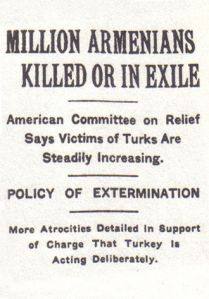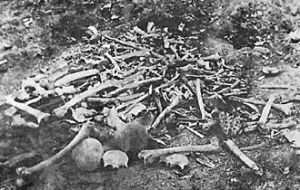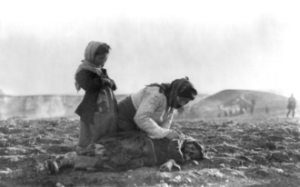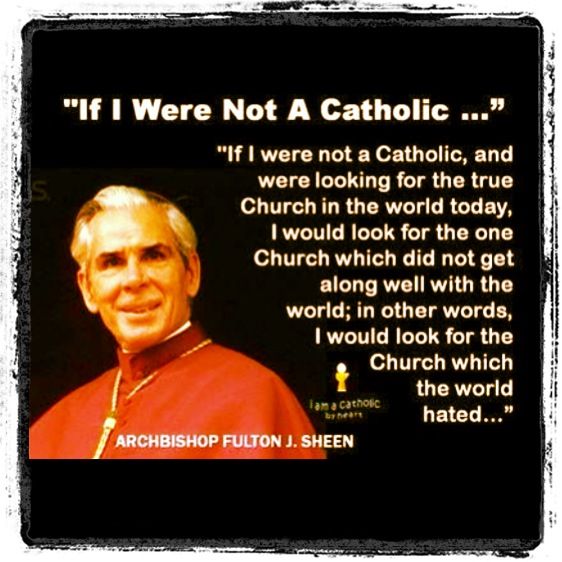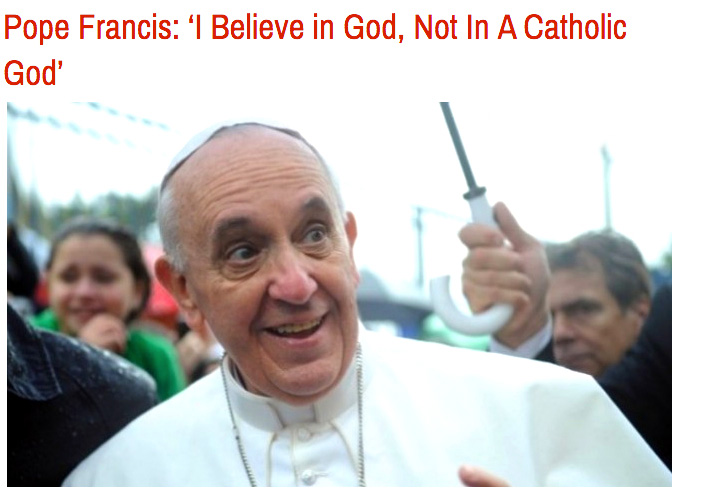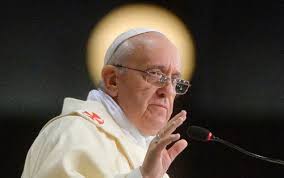From the religion of peace...
“And slay them wherever you come upon them, Fight them, till there is no persecution and the religion is Allah’s.”
4:89: “If they turn their backs, take them, and slay them wherever you find them; take not to yourselves any one of them as friend or helper.”
5:33: “This is the recompense of those who fight against Allah and His Messenger, they shall be slaughtered, or crucified, or their hands and feet shall alternately be struck off; or they shall be banished from the land.”
4:89: “If they turn their backs, take them, and slay them wherever you find them; take not to yourselves any one of them as friend or helper.”
5:33: “This is the recompense of those who fight against Allah and His Messenger, they shall be slaughtered, or crucified, or their hands and feet shall alternately be struck off; or they shall be banished from the land.”
Holy See should look to itself before "casting stones" at others?!
The leading authority on Islam in Turkey has condemned the Pope as "immoral" for describing the killing of 1.5 Armenians in 1915 as genocide.
Mehmet Görmez, head of the presidency of religious affairs in Turkey (making him the most senior scholar and Islamic cleric in Turkey and Northern Cyprus) said the Holy See should look to itself before "casting stones" at others.
The Pope prompted a diplomatic row when, in remarks to
commemorate the Armenian killings, he described the massacre as genocide. Turkey hauled in the Vatican's envoy for a dressing down, and recalled its own representative from Rome.
"The Vatican will come out as the biggest loser if we are all giving account for past sufferings and pain caused," Mehmet Görmez told Reuters in an interview.
Thousands of refugees from Syria are currently in Turkey, having fled the depredations of Islamic State. "Is the current situation of millions of Syrian refugees much less cause for concern to the Vatican than what happened during the Armenian deportation? I find the Pope's statement immoral, and can't reconcile it with basic Christian values."
Görmez criticized rising Islamophobia in Europe which he blamed on a weak economy and difficulties integrating immigrants. He said: "Islamophobia should be considered a crime against humanity, just like anti-Semitism."
Görmez also said violence carried out by groups such as the self-proclaimed Islamic State of Iraq and al-Sham (ISIS), Boko Haram, Al Shabaab and al Qaeda was a consequence of ignorance and poverty, as well as of the exploitation of the Middle East and Africa for two centuries. But he said in addition that the Koran should not be used to validate violence.
"Islam was a religion creating civilization throughout history. When educating Muslim children, clerics should reflect on the comparison between that and today's Koranic interpretations that incite violence," he said.
The debate has been prompted by the 100th anniversary of the World War One massacre by Ottoman Turkish forces, which is this Friday. France, the European parliament and Pope Francis use the term "genocide" . Turkey says they were not genocide because the killings were not the result of an order from above or an organized campaign. (??)
United Nations spokesman Stephane Dujarric said on Monday that the UN Secretary-General Ban Ki-moon prefers to describe the killings as an "atrocity crime" and not genocide.
Res ipsa loquitur!!
An article by the New York Times dated 15 December 1915 states that one million Armenians had been either deported or executed by the Ottoman government.
With the implementation of Tehcir Law, the confiscation of Armenian property and the slaughter of Armenians that ensued upon its enactment outraged much of the western world. While the Ottoman Empire's wartime allies offered little protest, a wealth of German and Austrian historical documents has since come to attest to the witnesses' horror at the killings and mass starvation of Armenians.
In the United States, The New York Times reported almost daily on the mass murder of the Armenian people, describing the process as "systematic", "authorized" and "organized by the government". Theodore Roosevelt would later characterize this as "the greatest crime of the war"
Armenian Genocide is acknowledged to have been one of the first modern genocides, because scholars point to the organized manner in which the killings were carried out in order to eliminate the Armenians, and it is the second most-studied case of genocide after the Holocaust.
To date, twenty-three countries have officially recognized the mass killings as genocide, a view which is shared by most genocide scholars and historians.
Historian Hans-Lukas Kieser states that, from the statements of Talaat Pasha it is clear that the officials were aware that the deportation order was genocidal. Another historian Taner Akçam states that the telegrams show that the overall coordination of the genocide was taken over by Talaat Pasha.
Death marches
The Armenians were marched out to the Syrian town of Deir ez-Zor and the surrounding desert. There is no evidence that the Ottoman government provided the extensive facilities and supplies that would have been necessary to sustain the life of hundreds of thousands of Armenian deportees during their forced march to the Syrian desert or after. By August 1915, The New York Times repeated an unattributed report that "the roads and the Euphrates are strewn with corpses of exiles, and those who survive are doomed to certain death. It is a plan to exterminate the whole Armenian people."
Sources:

